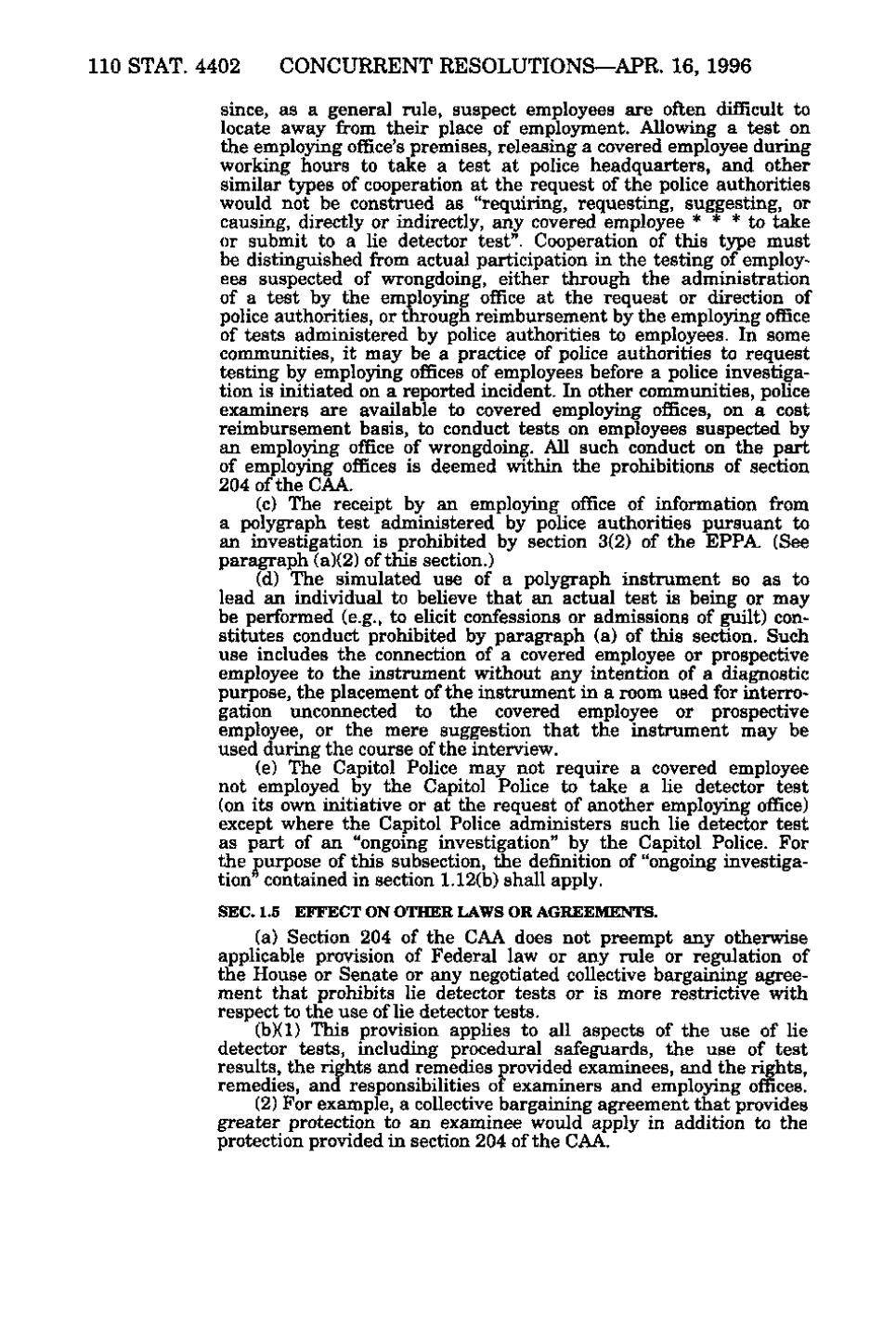110 STAT. 4402 CONCURRENT RESOLUTIONS—APR. 16, 1996 since, as a general rule, suspect employees are often difficult to locate away from their place of employment. Allowing a test on the employing office's premises, releasing a covered employee during working hours to take a test at police headquarters, and other similar types of cooperation at the request of the police authorities would not be construed as "requiring, requesting, suggesting, or causing, directly or indirectly, any covered employee * * * to take or submit to a lie detector test". Cooperation of this type must be distinguished from actual participation in the testing of employ- ees suspected of wrongdoing, either through the administration of a test by the employing office at the request or direction of police authorities, or through reimbursement by the employing office of tests administered by police authorities to employees. In some communities, it may be a practice of police authorities to request testing by employing offices of employees before a police investigation is initiated on a reported incident. In other communities, police examiners are available to covered employing offices, on a cost reimbursement basis, to conduct tests on employees suspected by an employing office of wrongdoing. All such conduct on the part of employing offices is deemed within the prohibitions of section 204of the CAA. (c) The receipt by an employing office of information from a polygraph test administered by police authorities pursuant to an investigation is prohibited by section 3(2) of the EPPA. (See paragraph (a)(2) of this section.) (d) The simulated use of a polygraph instrument so as to lead an individual to believe that an actual test is being or may be performed (e.g., to elicit confessions or admissions of guilt) constitutes conduct prohibited by paragraph (a) of this section. Such use includes the connection of a covered employee or prospective employee to the instrument without any intention of a diagnostic purpose, the placement of the instrument in a room used for interrogation unconnected to the covered employee or prospective employee, or the mere suggestion that the instrument may be used during the course of the interview. (e) The Capitol Police may not require a covered employee not employed by the Capitol Police to take a lie detector test (on its own initiative or at the request of another employing office) except where the Capitol Police administers such lie detector test as part of an "ongoing investigation" by the Capitol Police. For the purpose of this subsection, the definition of "ongoing investigation" contained in section 1.12(b) shall apply. SEC. 1.5 EFFECT ON OTHER LAWS OR AGREEMENTS. (a) Section 204 of the CAA does not preempt any otherwise applicable provision of Federal law or any rule or regulation of the House or Senate or any negotiated collective bargaining agreement that prohibits lie detector tests or is more restrictive with respect to the use of lie detector tests. (b)(1) This provision applies to all aspects of the use of lie detector tests, including procedural safeguards, the use of test results, the rights and remedies provided examinees, and the rights, remedies, and responsibilities of examiners and employing offices. (2) For example, a collective bargaining agreement that provides greater protection to an examinee would apply in addition to the protection provided in section 204 of the CAA.
�
